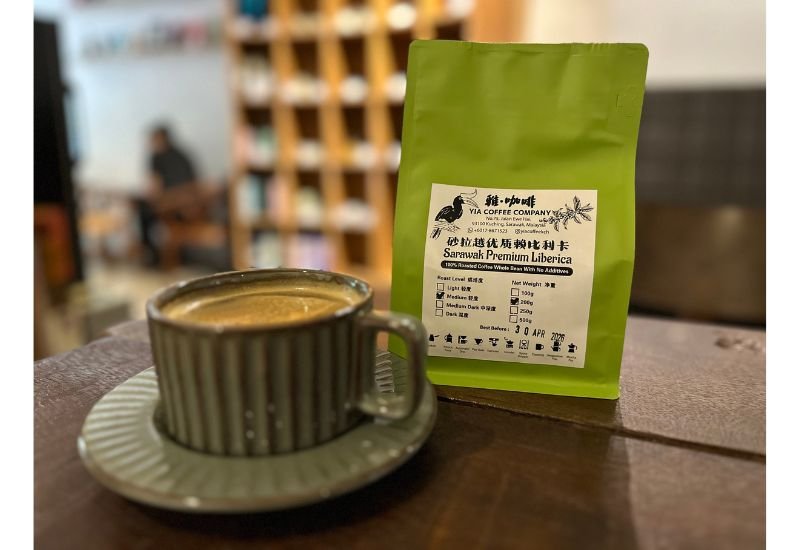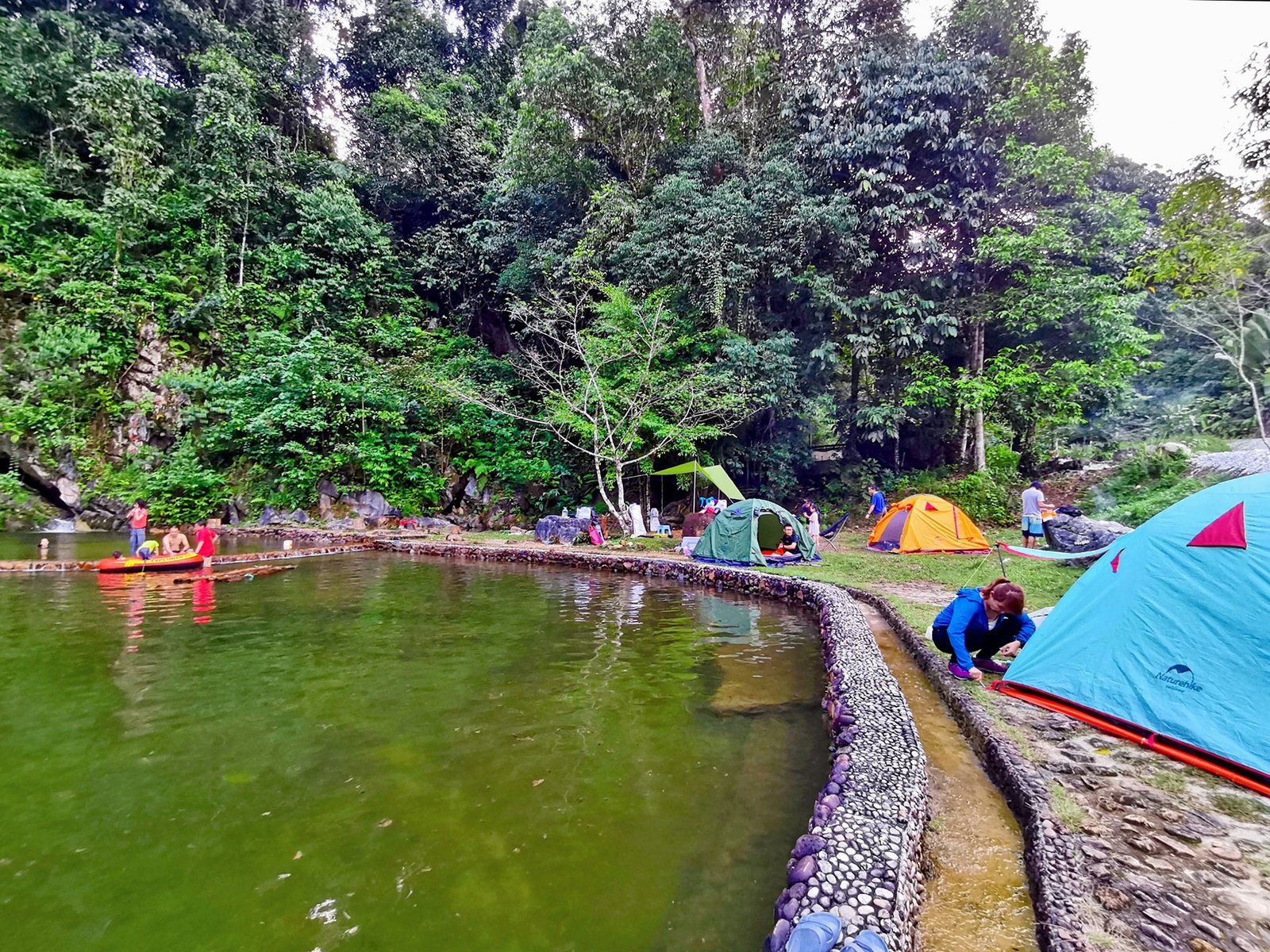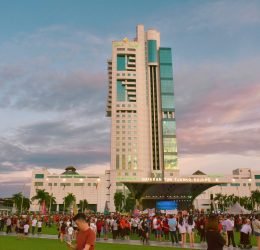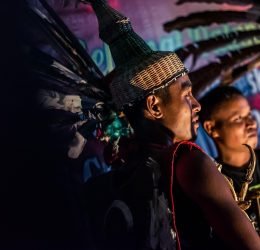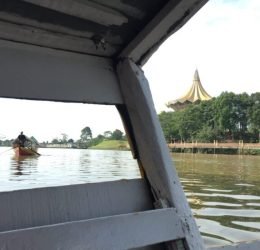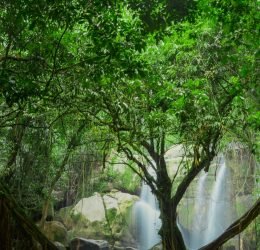So there I was, tucked into a little corner of a café along Carpenter Street, just escaping the drizzle and taking a moment for myself.
You know those afternoons where the city feels calm, the air smells like rain, and somehow the whole world slows down just enough for you to breathe? That was exactly it. The café was cozy—nothing fancy, just real and full of character. The kind of place that makes you feel at home the second you step in.
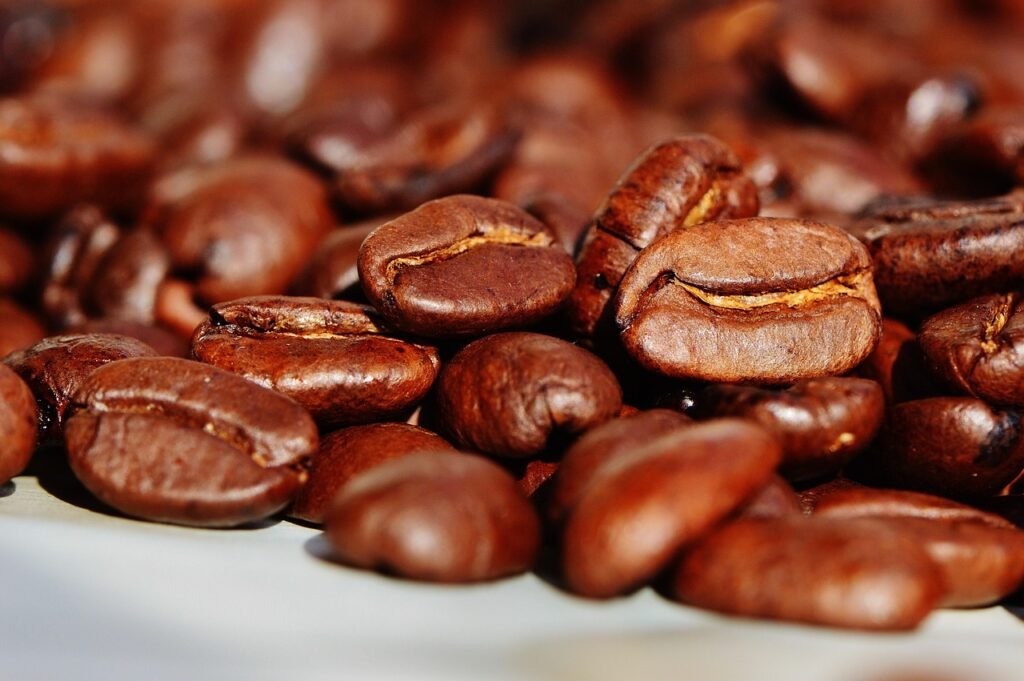
The taukenio smiled at me as she brought over a cup and placed a striking green bag beside it. “You have to try this,” she said. “Our new house blend—Sarawak Liberica. All local. From Borneo Highlands.” I didn’t say much at first, just nodded and took a sip.
And wow.
It was… unexpectedly good. Like, genuinely good. Medium acidity, with a fruity kick that made my tastebuds do a little dance. Smooth, comforting, but also bold in its own quiet way. Not in-your-face like some coffees, but confident. Like it knew where it came from. And right there, in that moment, I felt a rush of something that caught me off guard—pride.
We don’t talk about it much, but Sarawak is starting to find its rhythm in the coffee world. And it’s about time.
After sipping this newly found wonderful gourmet coffee, I couldn’t help but strike up a conversation with the tauke, Ahsze. Turns out, he’s Teochew too—same dialect group as me. That little connection made the whole moment even warmer. I asked him how he got into the café business, and he shared with such heartfelt simplicity that both he and his wife are passionate coffee lovers. Not just casual drinkers, but real coffee people.
He told me they didn’t want to just sell coffee—they wanted to serve something they could truly stand behind. So they went out and sourced the raw beans themselves, from local farmers in the highlands. “Coffee growing is not easy,” he said, his face lighting up with a mix of pride and respect. “The plants need care, and the processing… it’s a real skill.” The beans are handpicked, one by one. Then comes the careful selection—only the best beans make it to the roast. It’s artisan work, and it shows.
This is what I love seeing more of in Sarawak—people taking pride in what we grow, what we make, what we offer. The commercial scene in Kuching is starting to pulse with this quiet creativity. It’s not loud or flashy. It’s humble. Grounded. But powerful. You can feel it in these cafés, in the conversations, in the way baristas talk about beans like they’re introducing a friend. There’s a movement happening—and it’s full of heart.
Honestly, sipping that cup felt like more than just drinking coffee. It felt like hope. Like watching Sarawak gently step into the spotlight and say, “We’re here. We have something beautiful to share.”
It’s not just one café either. This spirit is blooming all over Kuching—Carpenter Street, Padungan, Satok, and little hidden gems I haven’t even discovered yet. There’s a new energy in town, and it’s caffeinated. Locals are curious. Tourists are delighted. And those of us who’ve watched Kuching grow over the years? We’re quietly cheering it all on.
There’s still a long road ahead. Building a name in the global coffee scene takes time. But we’re planting the seeds. We’re roasting the beans. We’re telling our story one cup at a time.
So if you’re ever in Kuching, please—don’t just hunt for kek lapis. Step into a small café. Order a brew made with Sarawak-grown beans. Let it warm your hands and your heart. Taste what’s quietly brewing here.
And if you’re reading this from far away, maybe in a city that’s a little too fast, a little too loud—let this be a little reminder. Sarawak’s changing. In the best way. We’re still the same home you love, just with a few more flavours to offer now.
This isn’t just about coffee. It’s about finding pride in the little things we do well. And finally sharing them with the world.
Come home. Have a cup. You’ll see what I mean.

